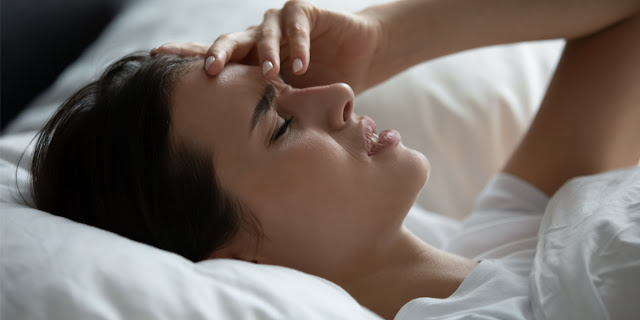How to know if you are having Migraine Attack?

How to know if you are having Migraine Attack?
What is a migraine?
A migraine is a
neurological disorder that manifests itself in a severe or severe headache,
which makes it an extremely disabling disease for people who suffer from it. It
affects the frontal part of the entire area of the skull and occurs in the
form of seizures or attacks. It can be accompanied by other symptoms. If you
want to buy migraine treatment medicine, such as Rizatriptan Tablets or Zolmitriptan Tablets,
you can purchase them online in the UK.
These crises can occur in the following ways:
● Episodic: When the pain appears up to 9 days a month, we will speak of a rare episodic crisis; or very frequent episodic if there is pain between 10 and 14 a month.
● Chronic: When there are 15 or more crisis days per month.
Types of Migraines.
It causes very strong
pain, so it interferes with normal activity, and the main Migraine symptoms
are:
● Pain on one side of the head, although in some cases it can spread throughout the head. This can lead to temporary blindness.
● In some cases, it is a throbbing pain (you feel your heartbeat).
● Less commonly, pain may occur in the neck or jaw.
● The pain appears spontaneously and usually lasts more than 4 hours and less than 3 days. In children and adolescents the attacks
● They can last less than 4 hours.
● Physical activity and head movement make the pain worse.
● It can cause intolerance to light (photophobia), to sounds (phonophobia) and to smells (osmophobia). Also nausea and vomiting.
Menstrual migraine
It is related to
the sudden drop in estrogen levels, which usually occurs just before
menstruation. It usually starts with the first period, but it can improve or
disappear during pregnancy or menopause. However, the treatments hormones
(birth control pill/hormone substitutes) can make it worse.
There are two types of menstrual migraines:
● Pure menstrual migraine: migraine attacks that occur on day 1 of bleeding ± 2 days.
● Related migraine: pure menstrual
migraine that can coexist with migraine episodes at other times in the cycle.
Causes of migraine
The origin of
migraine is a combination of environmental and genetic factors. Some families
are especially prone to it, and genetics influence the type of migraine
affected people to suffer.
Common genetic variants
Scientific studies
have identified different very important genetic variants in the multiplication
of migraines in the same family. For example, three Mendelian genes associated
with hemiplegic migraine (a severe form of migraine) and, more importantly,
polygenic inheritance, which involves the intervention of a group of specific
genes with different versions (alleles), which interact with each other to
provoke the manifestation of this disease.
In addition to
genetic factors, these factors can also lead to a crisis:
● Psychological: stress, anxiety and depression.
● Bad sleep habits: sleeping a lot or a little.
● Dehydration: it is important to drink enough water to stay hydrated, as dehydration can trigger migraine episodes.
● Hormonal: menstruation or ovulation.
● Diet: Bad dietary habits such as excess alcohol or caffeine, foods with nitrites, aspartame and monosodium glutamate. Skipping meals, feeling hungry, low blood sugar, etc.
● Pharmacological: nitroglycerin, estrogens, analgesics ...
● Sudden changes in physical activity.
● Headache or cervical pain, of another origin.
● Changes in the environment: seasonal or weather changes, changes in atmospheric pressure ...
● Sensory stimuli:
● Visual stress as a result of sunlight, prolonged exposure to a computer screen, or other bright or flashing lights.
● Strong odours, such as perfume, incense, cleaning products, tobacco smoke, or pollution.
● Loud and/or constant noises.



Comments
Post a Comment